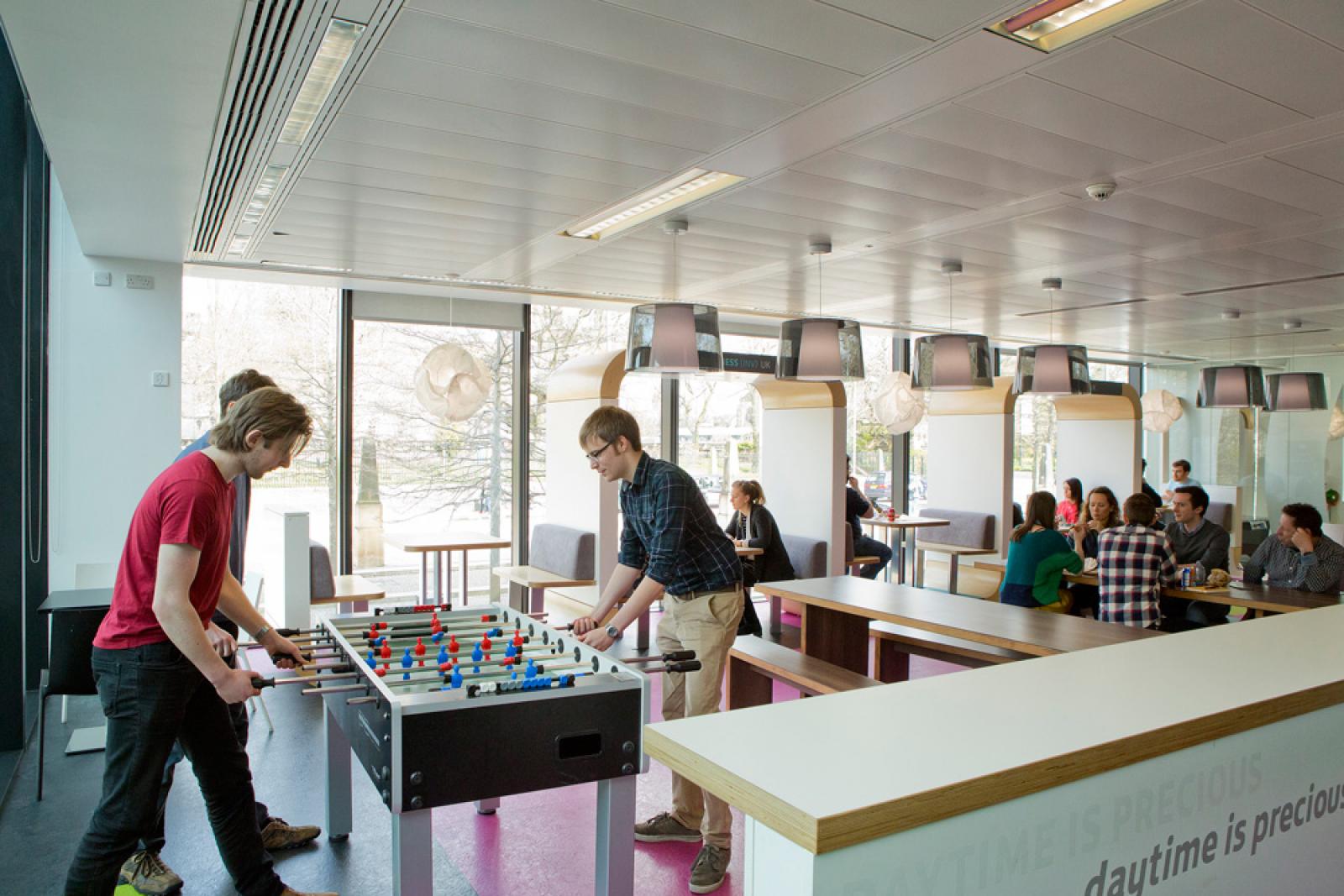30 October 2017

Like many international students in Edinburgh, flying home for the holidays often presented me with a complex set of challenges: Why are tickets so expensive? Why are there no direct flights? Why do the flights only leave at certain dates/times? However, in many ways, the issues that I faced manifest in many travellers’ user experiences when flying for business or leisure. Edinburgh-based company Skyscanner was founded with the desire to provide a tangible solution for the aforementioned problems, by providing the service of inspiring: ‘travellers around the world and mak[ing] travel search as easy as possible through our world-class technology’.
While studying Service Management for my MSc in Management, I was given the chance to be mentored by Josi Mathar, Growth Manager, PR Germany, in order to gain context and understanding of how service dominant logic and design manifests in industry. In our meeting, we discussed how Skyscanner identifies their site as a product and service, how they design and evolve their service to optimise their customers’ experiences, and how they transformed their corporate culture, thus facilitating co-creation between their teams and consumers.
When I arrived at Skyscanner, I was impressed by the office configuration, with its large windows and open floor plan. After getting a full tour from Josi, the intention of the design was clear: it optimises multi-departmental cooperation and knowledge-sharing, allowing teams to be autonomous – which allows the company to scale and work more efficiently – while simultaneously focusing on both their departmental and company missions. As I spoke to Josi more, I realised the impact that this culture had on Skyscanner’s service output, as will be explored later.
When we finished touring the office, we sat and discussed Josi’s background and her advice for entering the corporate world. She highlighted the advantages of a multicultural and interdisciplinary background and pressed the importance of understanding who your potential employers are, approaching people to ask questions, broadening your knowledge of industry trends, and connecting with others.
As we talked, I explained to Josi some of the things I had learnt in my Service Management class, in response to which she explained that Skyscanner provides a service and a product. The site, technology, and engineering itself are the products, she elaborated, however, the Growth Team is the closest to and interacts most with the clients, understanding their fears and coming up with solutions to alleviate them, therefore transforming the product into a service.
A core part of this is letting consumers know that their problems are being heart, then trying to educate the market about the services that they provide, which make purchasing a plane ticket ‘as easy as buying a book’. She highlighted that the dynamic between service and product is co-dependent, in that a product cannot function without service and vice versa.
We then went on to discuss the ways in which their team works on optimising their user experience through different research methods. The industry, Josi explained, is still trying to understand the best way to study user experience, but what they do know is that analysis is never linear and they need to account for a multitude of consumers and markets.
Returning to Skyscanner’s company office layout and culture, we spoke about why the Marketing department was redeveloped into Growth. To both facilitate the development and success of their service, Skyscanner realised that blending specialisations – such as marketing, commercial and engineering teams – was the best approach to growing their business. This interdisciplinary Growth team works on how a product is designed and when it is brought to market, asks “does our product solve our user’s problems?”, thus co-creating with their consumers. This led to developments such as the travel search bot for both Skype and Facebook Messenger, making it easier for consumers to ask live questions about flight pricing and destination recommendations.
As I was leaving the office, Josi explained that in order to grow in the digital service business, you need to be ready to consistently adapt, learn and change. However, one thing you should never change is your core values, which for Skyscanner is assuring that their consumers always trust them. This struck me as especially poignant: for both a company and an employee to grow in the service industry, they need to be ready to evolve with the market, however, they need to always hold onto a core value-set and mission in order to stay authentic.